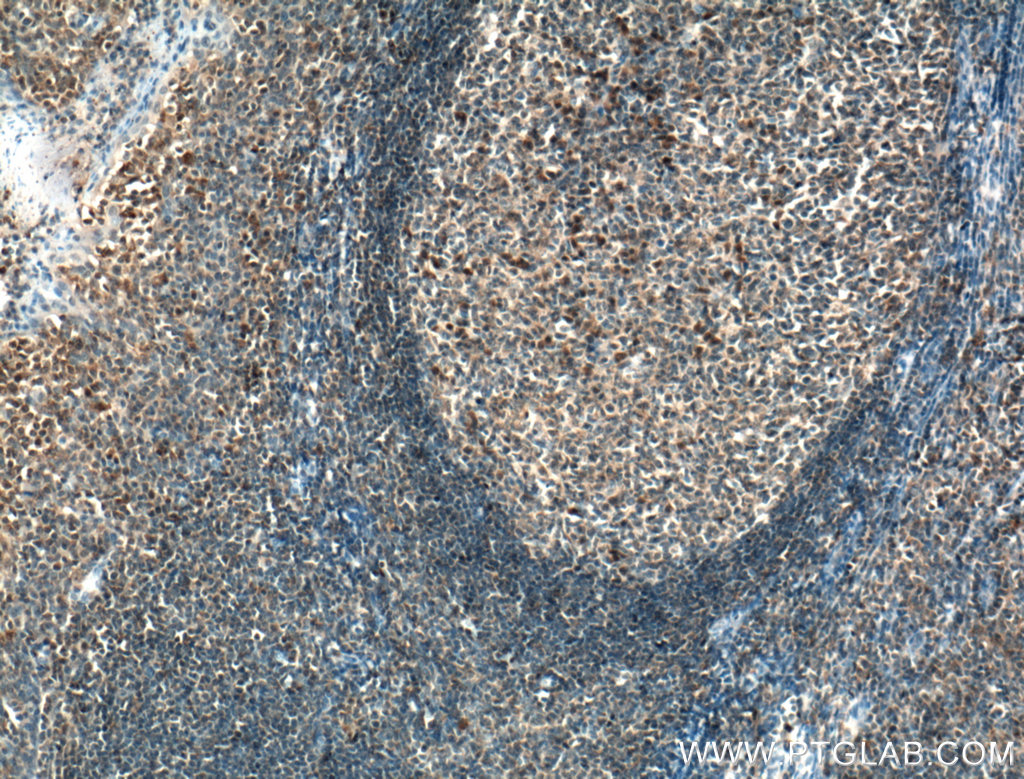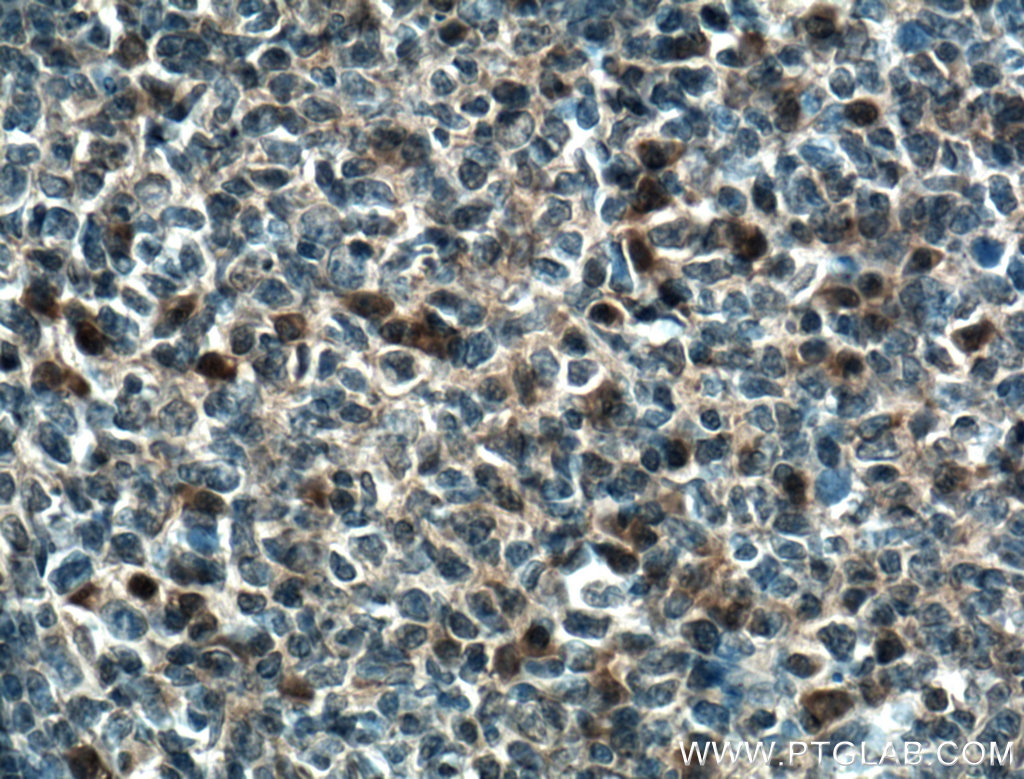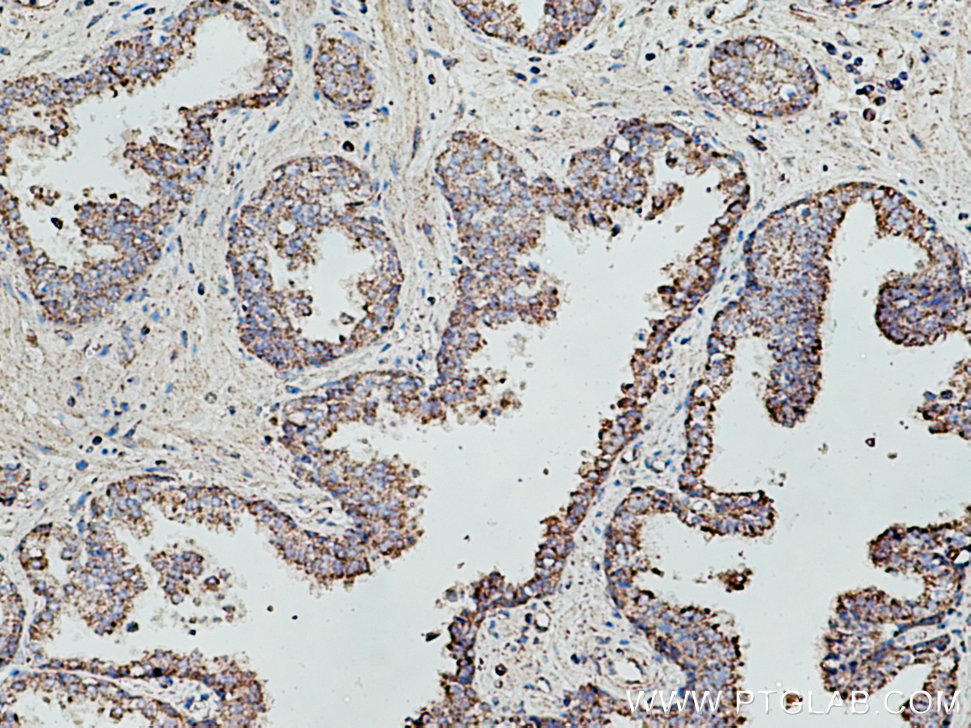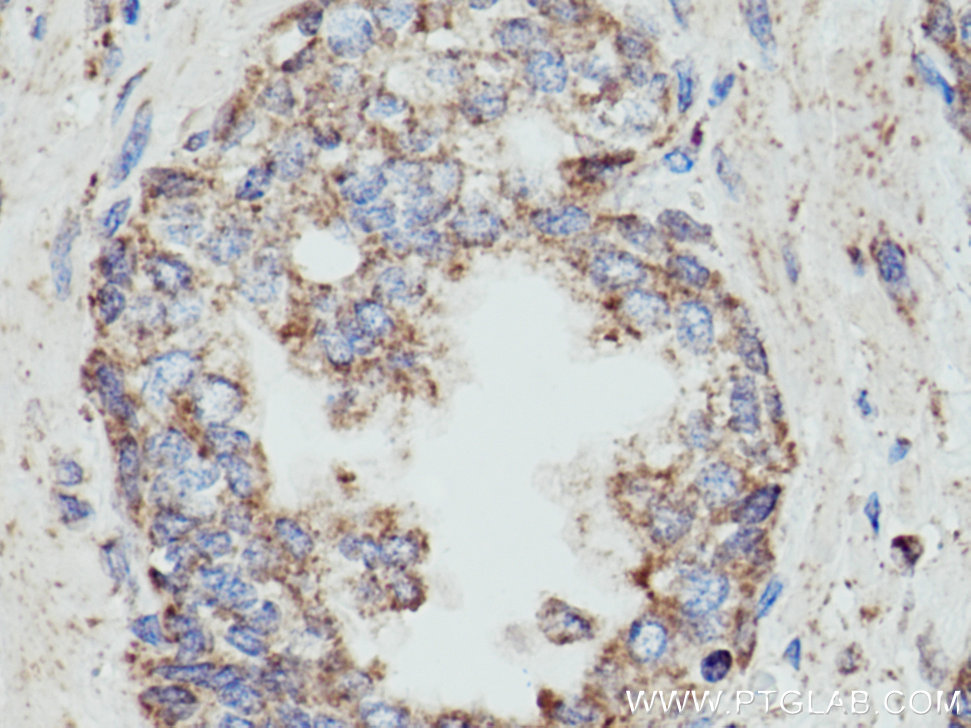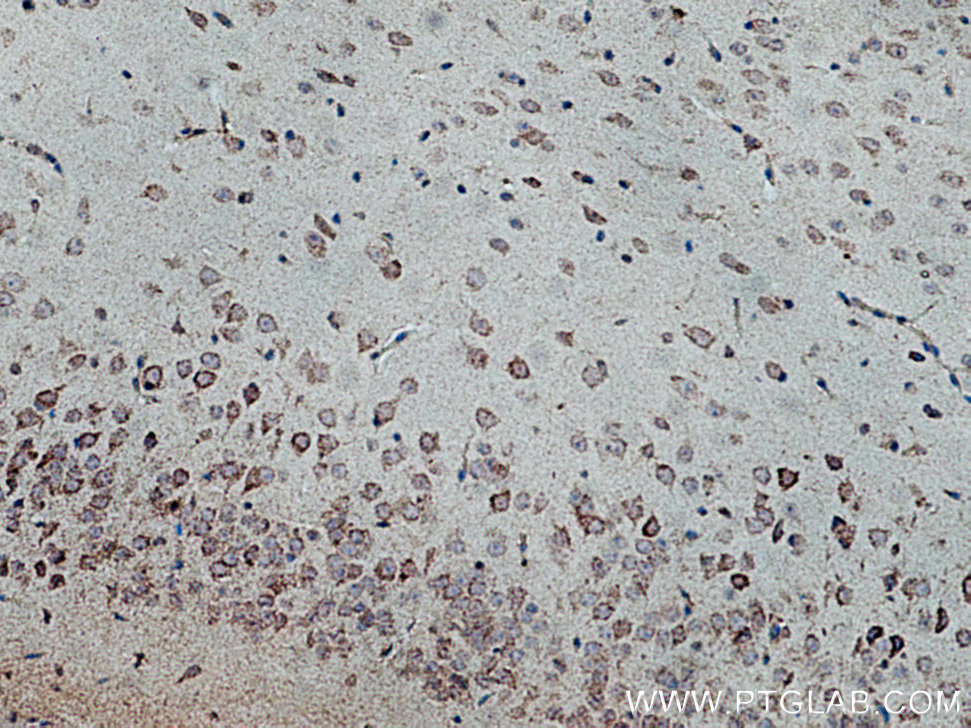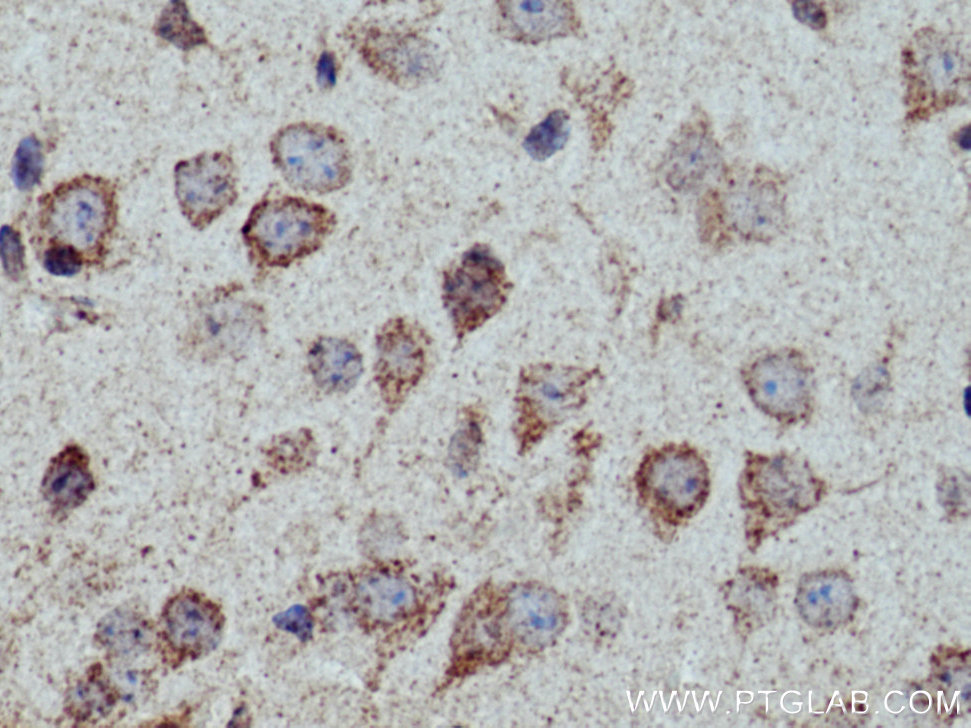验证数据展示
经过测试的应用
| Positive IHC detected in | human tonsillitis tissue, human prostate cancer tissue, mouse brain tissue Note: suggested antigen retrieval with TE buffer pH 9.0; (*) Alternatively, antigen retrieval may be performed with citrate buffer pH 6.0 |
推荐稀释比
| 应用 | 推荐稀释比 |
|---|---|
| Immunohistochemistry (IHC) | IHC : 1:50-1:500 |
| It is recommended that this reagent should be titrated in each testing system to obtain optimal results. | |
| Sample-dependent, Check data in validation data gallery. | |
发表文章中的应用
| IHC | See 1 publications below |
产品信息
17558-1-AP targets WDFY4 in IHC, ELISA applications and shows reactivity with human, mouse, rat samples.
| 经测试应用 | IHC, ELISA Application Description |
| 文献引用应用 | IHC |
| 经测试反应性 | human, mouse, rat |
| 文献引用反应性 | human |
| 免疫原 |
CatNo: Ag11720 Product name: Recombinant human WDFY4 protein Source: e coli.-derived, PGEX-4T Tag: GST Domain: 1-322 aa of BC032420 Sequence: MYLFSLGSESPKGAIGHIVSTEKTILAVERNKVLLPPLWNRTFSWGFDDFSCCLGSYGSDKVLMTFENLAAWGRCLCAVCPSPTTIVTSGTSTVVCVWELSMTKGRPRGLRLRQALYGHTQAVTCLAASVTFSLLVSGSQDCTCILWDLDHLTHVTRLPAHREGISAITISDVSGTIVSCAGAHLSLWNVNGQPLASITTAWGPEGAITCCCLMEGPAWDTSQIIITGSQDGMVRVWKTEDVKMSVPGRPAGEEPPAQPPSPRGHKWEKNLALSRELDVSIALTGKPSKTSPAVTALAVSRNHTKLLVGDERGRIFCWSADG 种属同源性预测 |
| 宿主/亚型 | Rabbit / IgG |
| 抗体类别 | Polyclonal |
| 产品类型 | Antibody |
| 全称 | WDFY family member 4 |
| 别名 | C10orf64, KIAA1607, WDFY family member 4, WDFY4 |
| 计算分子量 | 354 kDa |
| 观测分子量 | ~70 kDa |
| GenBank蛋白编号 | BC032420 |
| 基因名称 | WDFY4 |
| Gene ID (NCBI) | 57705 |
| RRID | AB_2288447 |
| 偶联类型 | Unconjugated |
| 形式 | Liquid |
| 纯化方式 | Antigen affinity purification |
| UNIPROT ID | Q6ZS81 |
| 储存缓冲液 | PBS with 0.02% sodium azide and 50% glycerol, pH 7.3. |
| 储存条件 | Store at -20°C. Stable for one year after shipment. Aliquoting is unnecessary for -20oC storage. |
背景介绍
WDFY4, also named as C10orf64 and KIAA1607, is a huge protein with unknown functions. WDFY4 is expressed predominantly in immune tissues such as lymph nodes, the spleen, the thymus and the tonsils. According to recent genome-wide association studies (GWAS), WDFY4 was introduced as novel predisposing genes for SLE (Systemic Lupus Erythematosus) which is a heterogeneous complex relapsing-remitting autoimmune disease. This antibody detects the C-terminal of WDFY4. The gene WDFY4 has some isoforms, 354 kDa, 73 kDa, 115 kDa, 353 kDa, 325 kDa( from UNIPROT) and 1992aa, 222 kDa; 3224aa, 358kDa; 624aa, 69 kDa; 1270aa, 143 kDa; 1887aa, 211 kDa (From NCBI).
实验方案
| Product Specific Protocols | |
|---|---|
| IHC protocol for WDFY4 antibody 17558-1-AP | Download protocol |
| Standard Protocols | |
|---|---|
| Click here to view our Standard Protocols |
